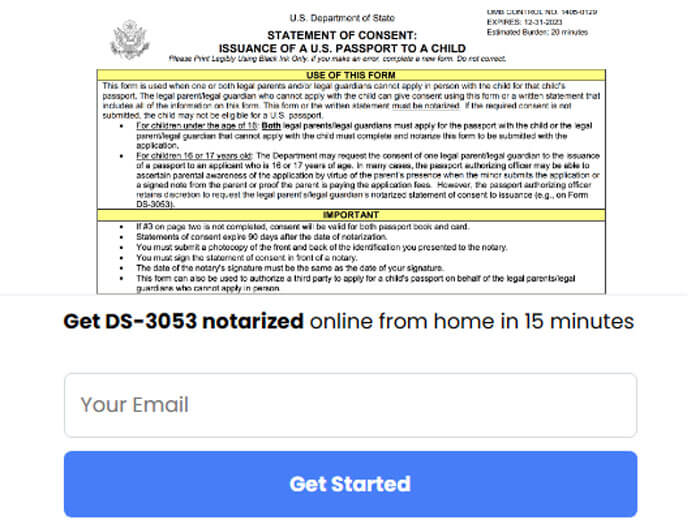Optimization of the DS 3053 foreign notary process with the use of Internet services

Incorporating digital notary platforms into the DS-3053 form submission procedure completely revamps the conventional method of notarization for passport applications. Applicants may confidently complete the DS 3053 foreign notary form remotely with the help of these platforms, which prioritize efficiency, security, and accessibility. Online notary platforms play a crucial role in the passport processing framework because of the digitalization of the notarization process, sophisticated security measures, and dedication to compliance. Using online notary services for passport form is a great example of how technology is changing administrative processes. It’s a solution that is current, focused on the customer, and lawful for passport applicants.
Electronic support for submitting form DS3053
The 3053 passport application might be complicated, however online notary platforms simplify the procedure significantly. These platforms make it easy for applicants to satisfy the unique criteria of the form by providing a digital notarization option. In order to issue a passport to a child, the application must first have the agreement of a parent or guardian who is not applying themselves. For the passport form, the non-applicant parent or guardian may virtually appear before a notary public using an online notary platform. The DS form becomes legally enforceable after the notary verifies the signer’s identification and does the necessary notarial act over secure video conferencing. By digitizing the notarization process, it can make it easier and more accessible for applicants, eliminating some of the obstacles that have long plagued the industry.
Compliance and security enhancements
To meet the rigorous standards of passport applications, digital notary platforms place particular emphasis on security and compliance while processing the passport form:
- The notarized DS3053 form will remain private and undamaged during transmission and storage thanks to state-of-the-art encryption methods.
- As part of its dedication to providing safe and reliable notarial acts, the platforms employ identity verification methods including biometric checks and multi-factor authentication.
- They make sure to keep updated on any legal revisions that might affect the form requirements, so they can stay in compliance with growing rules.
Remote notary platforms provide the highest level of expertise and care in the filing of forms by integrating state-of-the-art security measures with a dedication to following the law. This gives applicants peace of mind.
Efficient and user-friendly passport processing
The use of digital notary services for the 3053 greatly improves the accessibility and efficiency of applying for a passport. There is no longer any need for applicants to physically visit a notary’s office; they may commence the notarization from the convenience of their own homes or any place with an internet connection. People in time-sensitive or geographically restricted circumstances would really appreciate this degree of accessibility. Shorter processing times for passport applications are a result of the digital aspect of the procedure, which speeds up the filling out of the form. Additionally, applicants may benefit from the streamlined process and user-friendly interface offered by virtual notary services, which will lead them through all of the required processes and paperwork. In keeping with the changing expectations of a digitally driven society, this all-encompassing method guarantees that applicants have a seamless, fast, and safe procedure when using Internet notary services for passport form.
Sponsored Post
This is a Sponsored post. RitiRiwaz develops sponsored content with companies whose products and services we think our readers will find valuable or interesting.
Suggested Read: USA Student Visa






